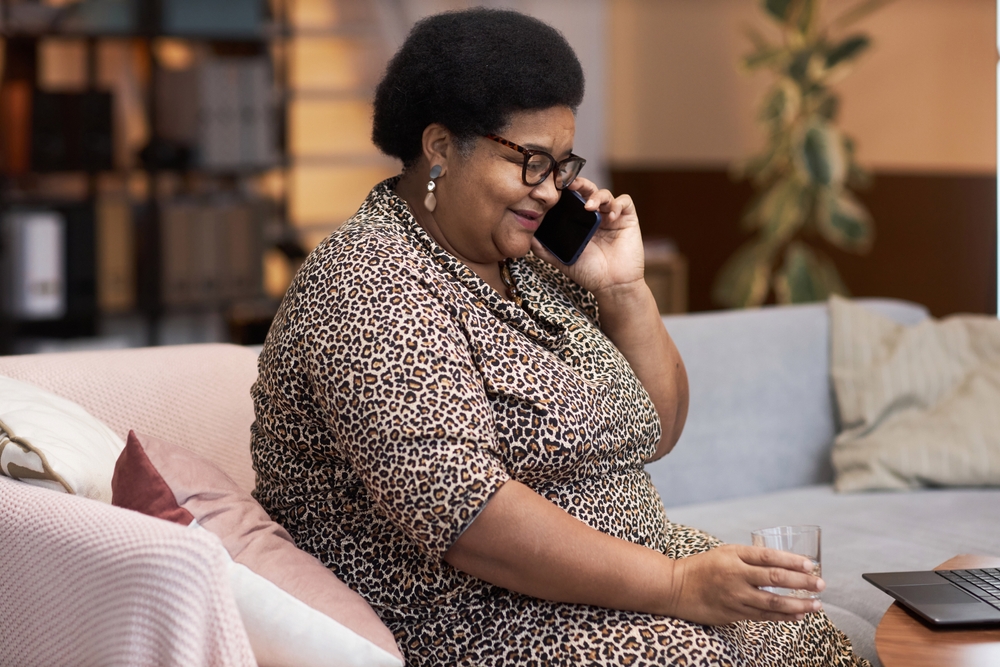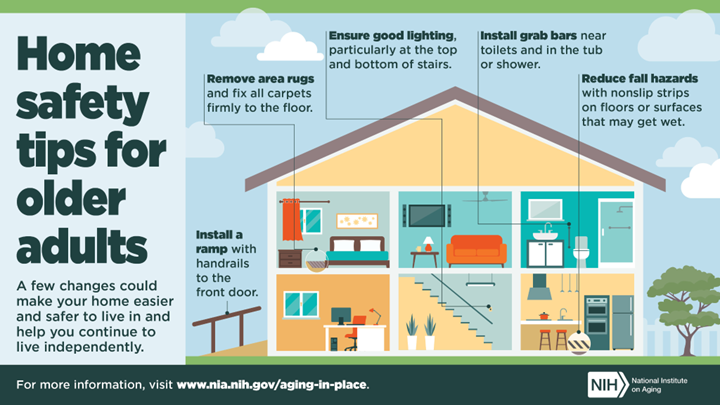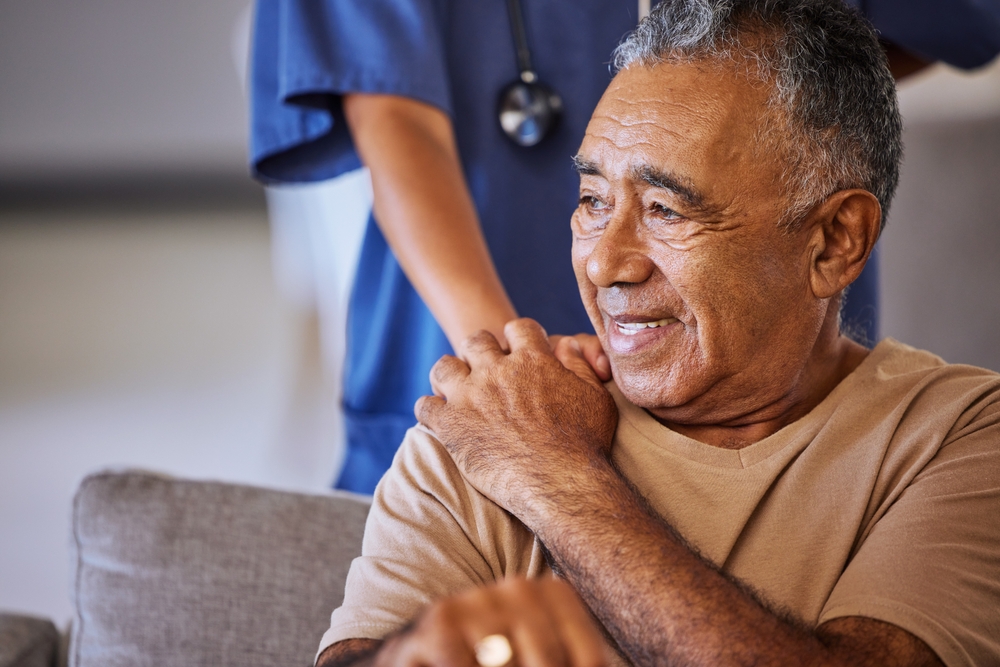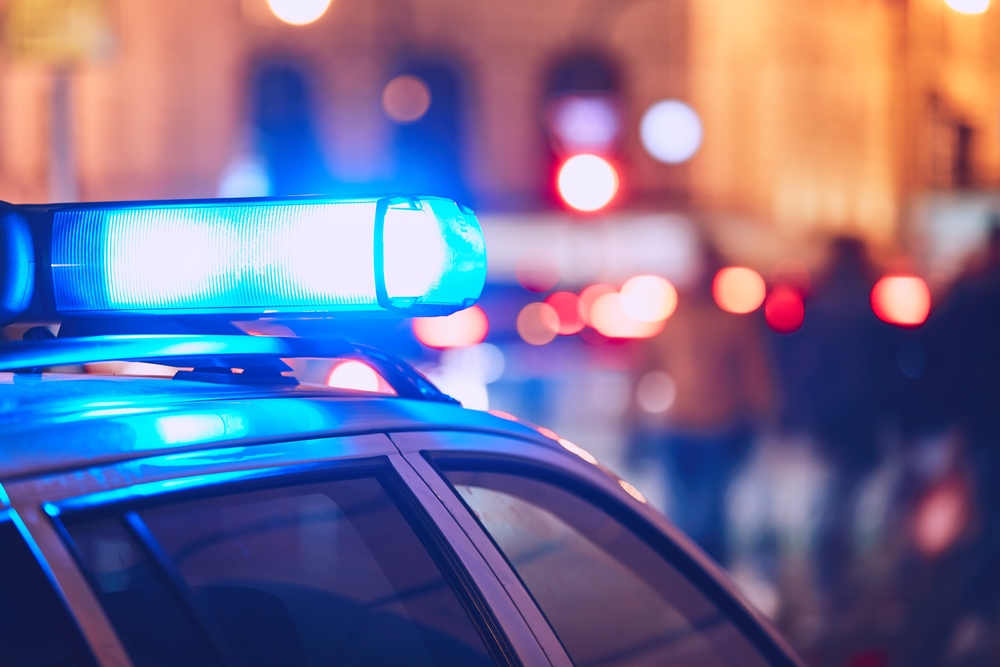Checklist for Elderly Living Alone
Category:

As your loved ones get older, you may find yourself worrying more and more about their safety.
Should Mom and Dad still be driving? What happens if Grandma slips and falls while no one is around? Does Grandpa have a reliable way to contact us in an emergency? While it’s unpleasant to think about, it would be even worse to delay exploring options for seniors living alone until someone gets hurt.
Ensuring safety for seniors living alone comes down to preparation. Anticipating these worst-case scenarios and taking the proper safety precautions for elderly people living alone can make the difference between your loved one’s maintaining their independence and needing full-time care. In this post, we’ll offer solutions for elderly folks living alone and help you create a home safety checklist for your seniors.
Download Our FREE Guide to Home Safety
Safety Tips for Seniors Living Alone

According to the National Council on Aging, the biggest home safety concerns for older adults include fires, falls, and medication use.
Falling may arguably be the biggest safety concern for seniors living alone — one in four Americans over the age of 65 will experience a fall each year, and it is the leading cause of fatal injuries for seniors. Even non-fatal injuries from a fall can wreak havoc on a senior’s health, often leading to lengthy recovery times and a permanent reduction in mobility. Visit the National Institute on Aging’s guide on preventing falls at home to get more safety tips for elderly people living alone.
Negative side effects from improperly taking medication are another major safety concern for seniors living alone. Creating a daily checklist for elderly patients who need to closely monitor their medications can help avoid slip ups. Consider using tools like an easy-to-open pill caddy and alarms to remind them to take medication at the proper time.
Home Safety Inspection for the Elderly
Before you can create a comprehensive home safety checklist for older adults, you’ll need to start by identifying the problem areas in your senior’s home. A senior home safety inspection aims to identify opportunities to improve the accessibility and maneuverability of the home while also identifying features that could lead to a safety issue.
For example, let’s say your loved one is struggling to get in and out of the bathtub on their own, and you’re worried about them slipping and falling while exiting the shower. Replacing their standard tub or shower with a walk-in bathtub with a seat and safety bar would greatly reduce these risks.
Consider going through each room in your senior’s home with the National Council on Aging’s room-by-room checklist to help you identify problem areas that may need your attention, or working with a Certified Aging-in-Place Specialist.
Senior Home Safety Checklist
After identifying necessary safety modifications and helping to create good habits around medication, there are a few other items you can add to your elderly home safety checklist:
- Help in an Emergency – Ensure your senior has multiple ways to get in touch with caregivers in the event of an emergency. If they fall in the bathroom and don’t have their cell phone, how will they let someone know they are in trouble? A medical alert device with a wearable button ensures your loved one can get help 24/7. If possible, choose a device with a built-in GPS tracker — Alzheimer’s Association reported six in 10 people living with dementia will wander at least once
- Home Security System – a report released by the U.S. Department of Justice showed about 93% of all crime experienced by adults 65 and older was property crime, which includes general theft, burglary, and car theft. Even a basic home security system can greatly reduce the risk of property crime.
- Mental Health and Social Needs – Schedule regular visits to monitor your loved one’s well-being and provide companionship. Look for opportunities to facilitate social interaction and connection.
To learn more about our home care services, contact our caregiving team today at 1-800-GRISWOLD or find a Caregiver near you.
Subscribe
Date: 2024-11-21
Category:


